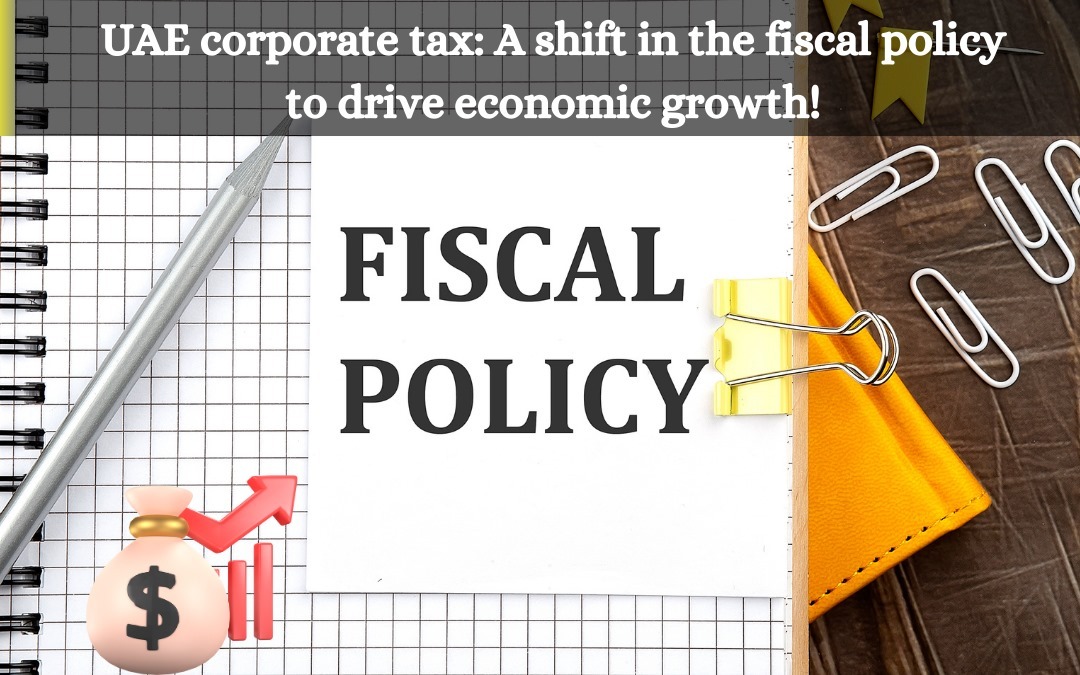The United Arab Emirates has been renowned for its zero-tax policies, attracting workers and businesses from across the world. The UAE cabinet of ministers issued cabinet decision No. of 2023, on May 8, levying a 9% corporate tax for some businesses. Such a decision has been viewed by tax consultants in Dubai as a strategic move to diversify the UAE’s income sources beyond oil while allowing the country to maintain its status as a regional commercial hub.
The introduction of the new tax regime has raised questions among Indian businesses and start-ups with regards to growth expansion, and adjustments in strategies. The CEO of BuyUcoin, India’s second largest-running digital asset exchange, stated that start-ups in the UAE need to have some tax rebate told by tax consultants in Dubai.
Understanding the new corporate tax rate in the UAE regime
The ministry stated that the cabinet decision No. of 2023 aims to clarify the application of the corporate tax rate in the UAE regime and ensure that only businesses and business-related activities are taxed. The new cabinet decision demonstrates the UAE’s commitment to maintaining a clear and competitive tax framework for both foreign and local individual investors.
Some also say that the new tax regime reaffirms the UAE’s commitment to meeting international standards for tax transparency and preventing harmful tax practices. Introducing a CT regime reaffirms the UAE’s commitment to meet international standards for tax transparency and preventing harmful tax practices.
The new decision will apply to both non-resident and resident natural persons conducting business activities in the UAE. However, such law is only subject to businesses with a turnover or gross income that exceeds AED 1 million yearly which is equivalent to around 270 thousand USD.
Free zone exemptions and benefits
While businesses and CA firms in Dubai around the UAE are now preparing for the new tax laws, it is necessary to note that different exemptions are being made for businesses which operate in strategic sectors. Those exempt from corporate tax include natural resources businesses, government entities, government-controlled entities, qualifying public benefits entities and qualifying investment funds, private pensions or social security.
Companies which operate in free zones could also pay zero tax on income if they fall under certain qualifying transactions and activities suggested by some CA firms in Dubai. These activities include but are not limited to funds, investment and wealth management services, manufacture and processing of materials or goods, reinsurance services, holding of shares and other securities.
Defining business activity and business:
The law states business as any activity conducted regularly, on an independent or ongoing basis in any location; including industrial, agricultural, commercial, vocational, professional, service or excavation activities or any activity related to the use of intangible or tangible properties. Business activity could also be mentioned as any activity or transaction or series of transactions or activities conducted by a person in the course of their business.
Income from the following activities is not considered income from a business activity: salaries or wages paid to employees, income from real estate investment and personal investment income however, this exclusion applies only on real estate activities not conducted using a license or requiring a license from a licensing authority in the UAE. This means that personal income tax in the UAE still makes the UAE a hot destination for global talent.
Adjustments for Indian businesses
Indian businesses operating in the UAE would now need to comply with transfer pricing documentation and rules requirements discussed with any tax consultant in UAE. They may also have to assess the adequacy of the existing tax function, operating model, and governance to meet the requirements of the new tax regime.
Few things which businesses must keep in mind when making adjustments to their business operations due to the new tax laws.
- Tax residency rule: A foreign company may be treated as a resident person for UAE CT purposes if it is effectively managed and controlled in the UAE.
- Transfer pricing provisions: Transfer pricing rules apply to UAE businesses which have transactions with related parties, irrespective of the location of the related party.
- Substance requirements in Free Zone: A qualifying Free Zone person needs to have and be able to demonstrate adequate substance in a Free Zone relative to the nature and the qualifying income it earns. Tax consultants in UAE would explain it well in detail.
To conclude
Introducing a 9% corporate tax in the UAE marks a major policy shift and a huge step inclined to international tax transparency standards. Despite positive implications for businesses, the UAE procures a healthy environment for local and foreign investors with tax exemptions for key sectors and a down fall in rates for free zone businesses.



Recent Comments